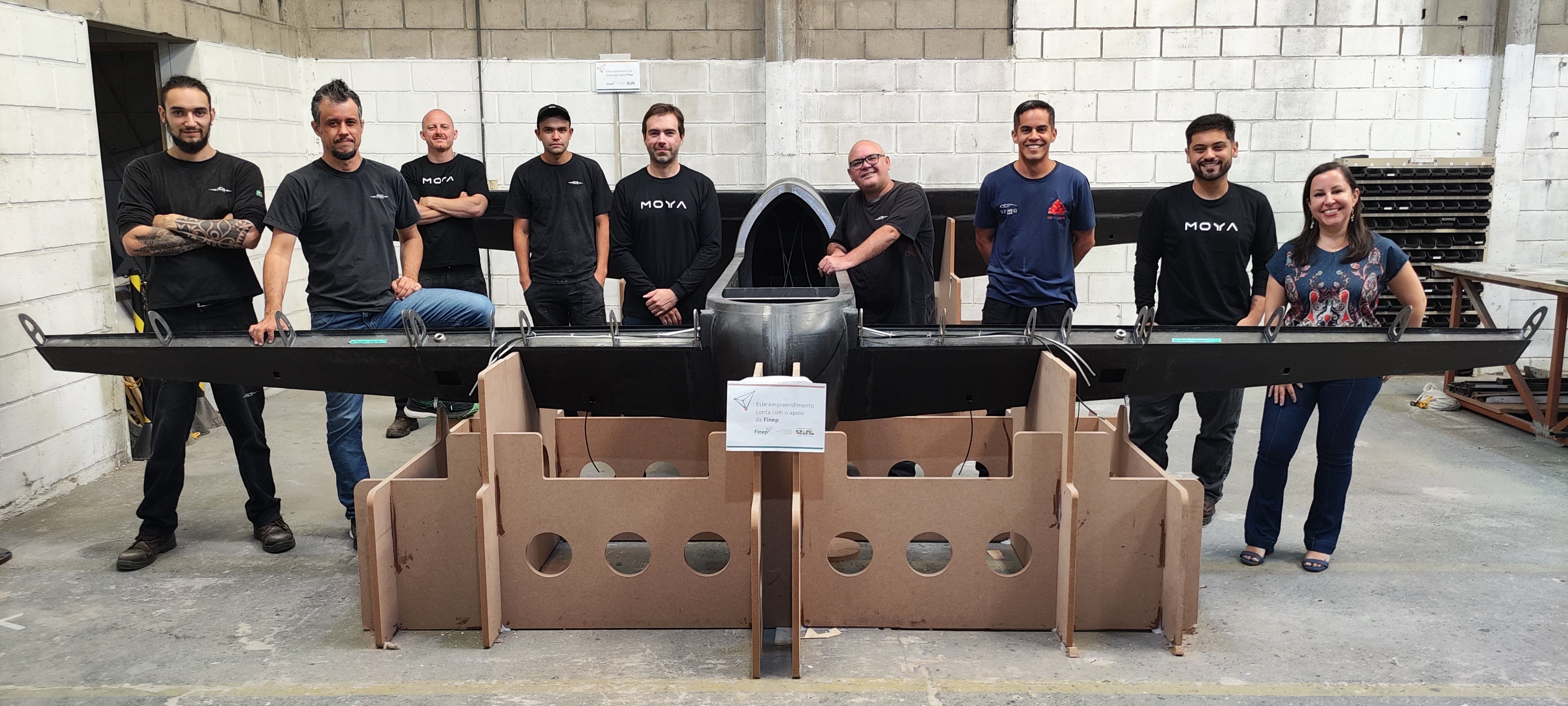Moya Aero is preparing to start test flights with a 70 percent scale prototype of its planned autonomous eVTOL aircraft. The Brazilian start-up this week reported that the first flight will take place during the southern hemisphere's spring season, which starts in late September, at an airfield called Fazenda Maristela near São José dos Campos.
Having earned a $2 million grant earlier this year from FINEP, a Brazilian government organization that promotes science, technology, and innovation, the Moya team has now almost completed manufacturing the technology demonstrator, which will have a 5.5-meter (18-foot) wingspan. It expects early use cases for the unnamed aircraft to include functions such as crop spraying and cargo deliveries in large countries like Brazil.
The design features two pairs of propellers, installed on a tandem wing configuration, each with its own electric motor. Rather than tilting the wings or propellers, the fuselage rotates between vertical and horizontal phases of flight. The aircraft is expected to have a payload of 200 kilograms (440 pounds) and a range of 110 kilometers (70 miles).
According to Moya, it is building the fuselage and wings from various composite materials, including carbon fiber and epoxy resin. It is producing its own batteries, having sourced electric motors from a company called T-Motors.
An undisclosed supplier has provided the autopilot system. Moya, which is a spin-off from aerospace services group ACS Aviation, says its team has already received some training with the autopilot, resulting in adjustments to the aircraft’s controls. It is also ground-testing the various elements of the powertrain.
Reducing Drag To Boost Performance
Over the next few weeks, it will produce the fairings that will minimize drag on the airframe as well as the landing gear. Moya claims its design will have 50 percent less drag than other lift-and-cruise-configured eVTOL vehicles, as a result of earlier work using computational fluid dynamics techniques to evaluate trade-offs between the propulsion system and the airframe shape.
At the same time, Moya’s engineers are developing a digital simulation of the aircraft to support further development work on the design and preparations for flight testing. It is also making a smaller drone demonstrator that it will fly to verify the autopilot.
Meanwhile, Moya’s marketing team has just concluded a joint study with Brazil’s Universidade Federal de Vicosa, which is an agricultural university. The partners have been evaluating applications for the aircraft.
Moya says it has begun discussions with Brazil’s ANAC aviation safety agency about the type certification process. For now, it has not set a target date for the aircraft to enter service but it says its program is on schedule and on budget.
In addition to the support from FINEP, the company says, it has a further $2 million in seed fund backing from Fundepar and Hards. It expects its eVTOL to be Latin America’s first high-capacity cargo drone.
